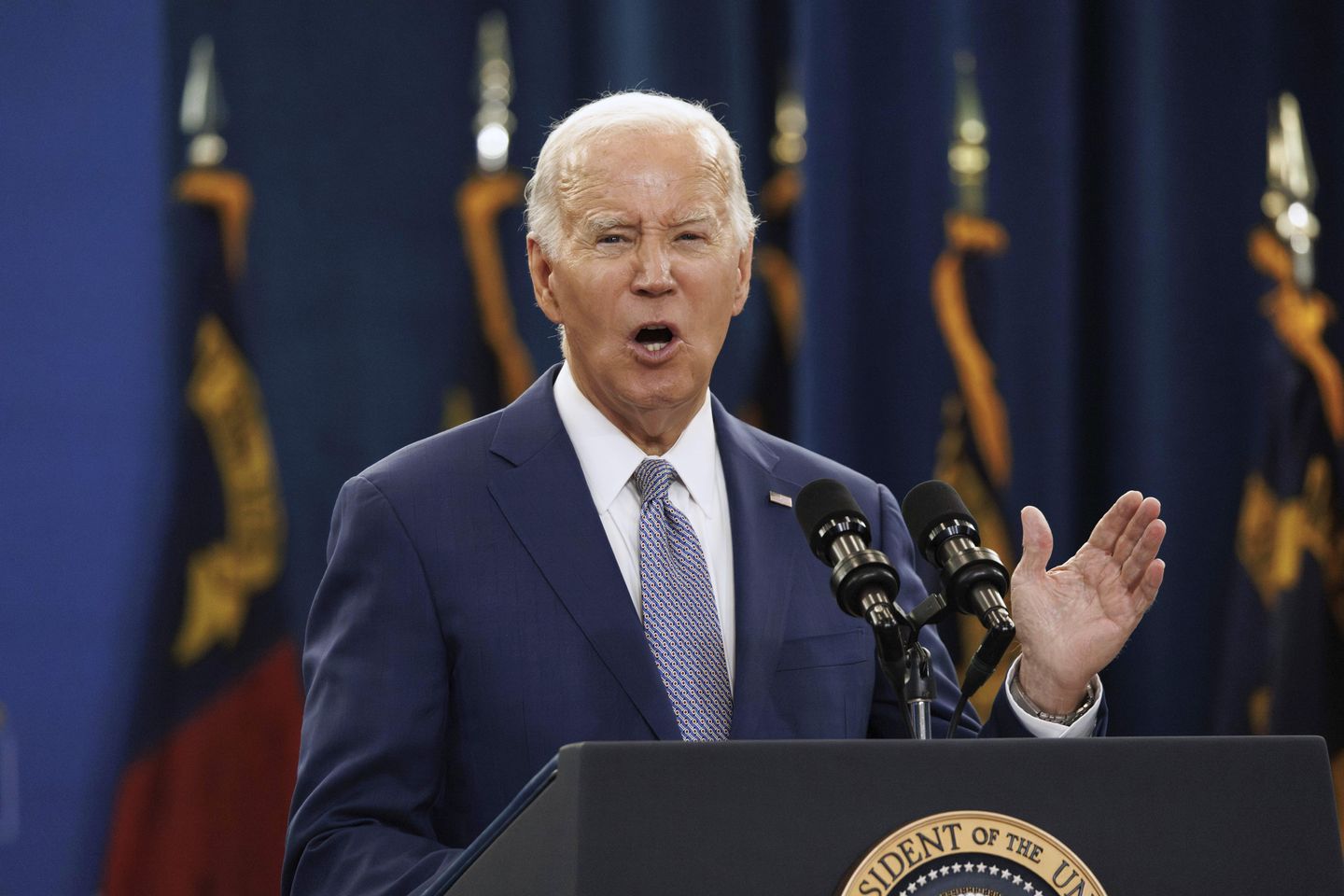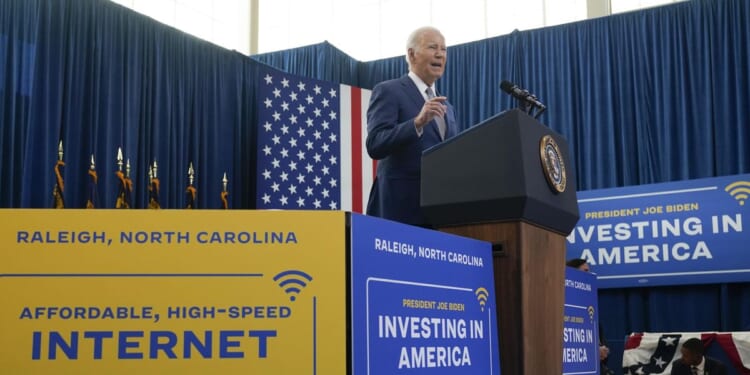
LOS ANGELES (AP) — President Biden recently traveled to North Carolina to promote his goal of affordable internet access for all Americans, but the promise for 23 million families across the U.S. is on shaky ground.
That’s because a subsidy that helps people with limited resources afford internet access is set to expire this spring.
The Affordable Connectivity Program (ACP), which provides $30 a month for qualifying families in most places and $75 on tribal lands, will run out of money by the end of April if Congress doesn’t extend it further.
“I think this should be high priority for Congress,” North Carolina Gov. Roy Cooper, a Democrat who has worked with a bipartisan group of governors to promote the program, said in a phone interview. “To many families, $30 a month is a big deal.”
It matters a lot to Shirleen Alexander of Charlotte, who said the money she saves through the ACP goes toward her grocery bills. It also offsets some of the stress she feels over medical bills.
“If they took (ACP) away, it would be like taking food out of my mouth,” said Alexander, a senior citizen on a fixed income. “I need the service, and some of my senior citizen friends need it, as well.”
The program is key to the Biden administration’s plans to make the internet available to everyone, which the president has touted repeatedly as he has ramped up his reelection campaign. He has likened it to the Rural Electrification Administration, the New Deal program that delivered electricity to much of rural America in the 1930s.
“Our goal is to connect everyone in America to affordable, reliable high-speed Internet by the year 2030, everyone in America, just like Franklin Roosevelt did a generation ago with electricity,” President Biden said in Raleigh last month.
So far, only 43% of eligible households nationwide have signed up for the ACP subsidy. But the program has enabled people who have signed up to avoid the kinds of financial trade-offs Alexander described, said Brian Vo, chief investment officer of Connect Humanity, a nonprofit promoting widespread internet access. It also gives them access to vital services such as telehealth, remote schooling and work, he said.
“If you put ACP and affordability in the context of the social determinants it drives and the economic value created, the benefits far outweigh the cost of $30 per household,” Vo said.
If the program expires, participating families, including nearly 900,000 in North Carolina, will either lose internet access or have to pay more to stay connected.
North Carolina is among the top states in the country when it comes to taking advantage of the ACP, according to an AP analysis of the program. More than 50% of eligible households in the state are enrolled in the program.
A bipartisan group of lawmakers recently proposed a bill to sustain the ACP through the end of 2024 with an additional $7 billion in funding – one billion more than what Biden asked Congress to appropriate for the program at the end of last year. However, no votes have been scheduled to move the bill forward and it’s unclear if the program will be prioritized in a divided Congress.
In the meantime, the Federal Communications Commission has already taken steps to wind the program down. It has instructed internet providers to send notices about the projected end of the program and announced that it will stop accepting new enrollees after February 7.
Nate Denny, the deputy director for broadband for North Carolina, said he’s “extremely worried” about the winding down of the subsidy program, especially as the state is set to receive a total of $1.5 billion from the federal government. Most of that money will be awarded to internet providers to build internet infrastructure in areas that need it most.
“The ACP has a tremendous effect on adoption, but it also has a huge impact on the state’s ability to stretch available infrastructure funding,” Denny said.
The ACP reduces the amount of grant money an internet provider needs to build into lower-income communities because it provides the assurance of a steady customer base, according to state broadband leaders the AP spoke with and an analysis from nonprofit Common Sense Media and consulting firm Boston Consulting Group.
“With the ACP’s help, internet providers are seeing more willing subscribers, more beneficiaries of their investments that then help them stretch their capital further, and thusly stretch state investments, as well,” Denny said.
The infrastructure money comes from a pot of $42.5 billion allocated for the Broadband Equity, Access and Deployment (BEAD) program, the cornerstone of the Biden administration’s efforts to close the digital divide for good.
In December, states submitted draft plans detailing lower-cost plans that providers who build networks using BEAD money will be required to offer qualifying families. Several states incorporated the ACP subsidies into those draft plans in ways that would lower the cost for internet access to zero for some customers.
Though those lower-cost plans wouldn’t work as designed without support from the federal subsidy program, a spokesperson for the National Telecommunications and Information Administration said BEAD “will still connect everyone in America and ensure that newly connected households have access to affordable plans.”
Several Biden administration officials, including Secretary of Commerce Gina Raimondo, have highlighted the need for more funding for the program during trips across the country in recent months.
The state of North Carolina will do what it can to maintain affordable internet no matter what, the governor said, but he hopes Congress will keep the subsidies coming to those who need them.
“We want to try to keep this program alive, and I still think the chance to do that is still there,” Cooper said.
___
Harjai is a corps member for The Associated Press/Report for America Statehouse News Initiative. Report for America is a nonprofit national service program that places journalists in local newsrooms to report on undercovered issues.












